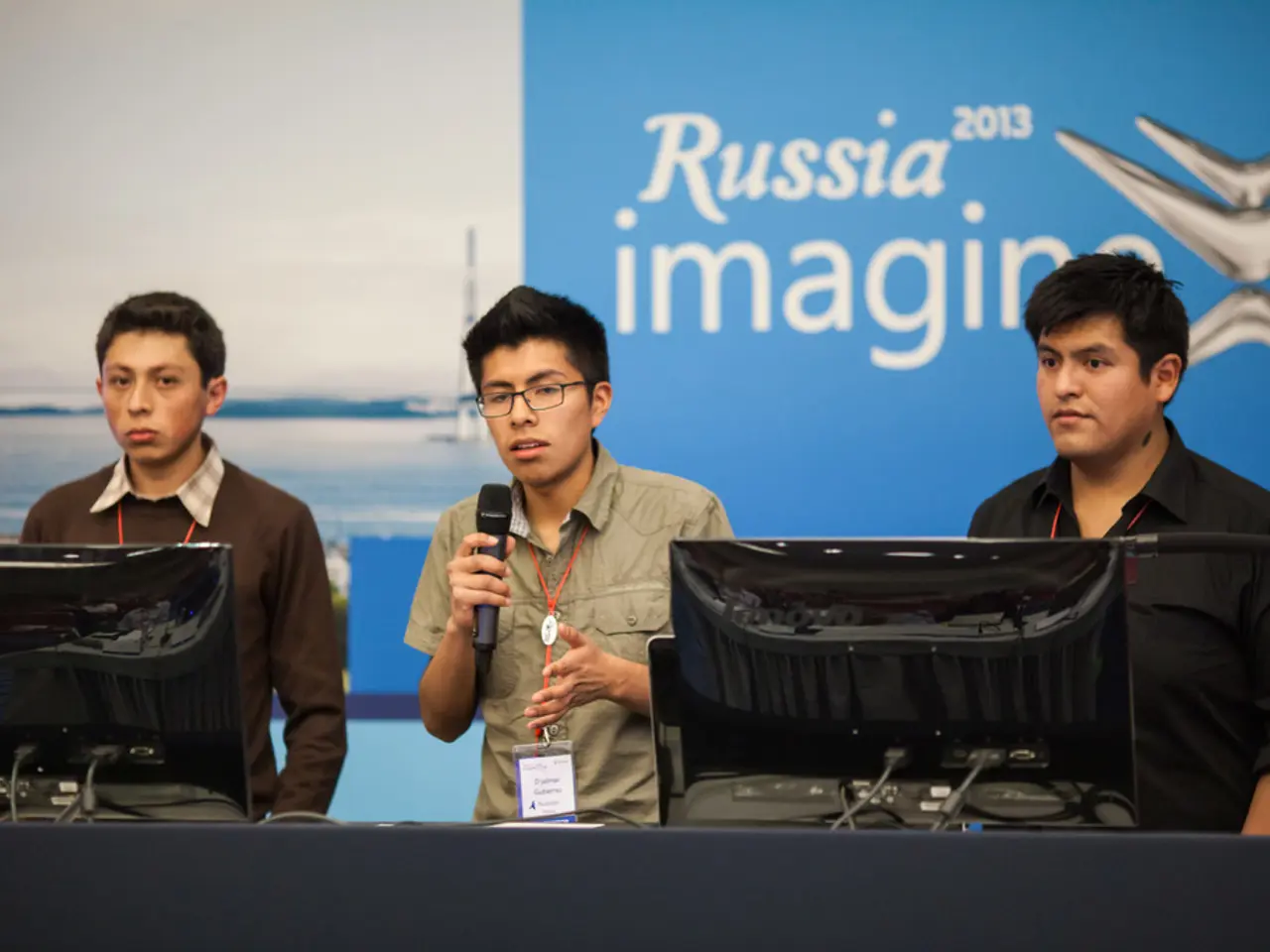AI-based Job Resources Alleviating Youth Joblessness Crisis
========================================================
In a bid to combat youth unemployment and harness the potential of Artificial Intelligence (AI) in Africa, various initiatives are being launched to equip young people with digital skills and connect them to suitable jobs.
David Sokefun, from Codar Tech Africa, emphasizes the need for educational institutions to focus on soft skills like communication, business strategy, ethics, and psychology, in addition to traditional teaching methods. AI-powered career tools are playing a significant role in this regard, providing personalized training, skills assessment, mentorship, and job matching based on real-time labor market data.
One such initiative is the partnership between Microsoft's AI Skills Initiative, Eyouth, EDT&Partners, and Microsoft Philanthropies, aiming to equip millions of Kenyans with digital skills.
However, scaling these solutions requires more than just technology. Takeshi Oikawa, Managing Director and Partner at BCG, underscores the need to address infrastructure deficits, talent shortages, policy gaps, language barriers, and data bias in scaling AI career tools across Africa.
South Africa’s Harambee Youth Employment Accelerator is an example of a successful initiative that leverages scalable and cost-effective cloud platforms (e.g., Google Cloud) and zero-rate data access to make digital tools more accessible and affordable for youth.
Addressing the digital divide involves creating partnerships among governments, private sector, and communities to invest in digital skills training, infrastructure expansion, and policy frameworks that enable greater online access and inclusion for underserved populations.
The lack of local AI talent is being mitigated through targeted AI training programs like ALX, Zindi, and Data Science Nigeria, which offer hands-on learning tailored to local industry needs, short-term courses, and mentorship. These initiatives also foster innovation in critical sectors like healthcare, agriculture, and finance.
Pablo Langa, Founder and Managing Partner of EDT&Partners, stresses the importance of digital skills and AI in enhancing the competitiveness of the MENA region. Eunice Muthengi from the Mastercard Foundation highlights the importance of collaboration across sectors to create more effective interventions that truly impact young people's lives.
The BrighterMonday Uganda-Mastercard Foundation partnership showcases how AI-powered tools are already making strides by providing real-time, personalized job search support. A combined approach that leverages the strengths of both AI tools and human counselors could be the most effective way to guide young job seekers.
However, addressing the challenges faced by AI career tools in Africa requires sustained investments in infrastructure, expanding access to digital education, nurturing local AI expertise, and collaboration between governments and private organizations. The International Finance Corporation (IFC) predicts 230 million "digital jobs" in Sub-Saharan Africa by 2030, all requiring some level of digital skills.
The cost of inaction on AI skills shortages is too high, with nearly 90% of survey respondents reporting that delays, failed innovations, and loss of clients are already occurring due to these shortages. Nazia Pillay from SAP Southern Africa notes that private sector organizations need to step up investment in workforce development.
Reshma Sheoraj from World Data Lab emphasizes the need for governments to design evidence-based programs and invest in infrastructure. African Centre for Women, Information Communication and Technology (ACWICT) receives a $600,000 grant from Microsoft Philanthropies to train over 300,000 youth, particularly in the agri-food sector.
Lubabalo Dyantyi, Co-founder and Director of Deviare, emphasizes the importance of ensuring employability for those trained in AI skills. In summary, AI career tools address youth unemployment in Africa by delivering customized skill development and career guidance aligned with market demands, utilizing cloud-based infrastructure and zero-rated data initiatives to improve digital access, bridging the AI talent gap through focused training and partnerships, and overcoming systemic barriers through scalable, population-level AI-driven job matching platforms.
[1] World Economic Forum (2021). AI for Jobs: Harnessing Artificial Intelligence for a Future of Work. Geneva: World Economic Forum. [2] McKinsey & Company (2020). Leveraging technology to address youth unemployment in Africa. Washington, DC: McKinsey & Company. [3] Google (2020). Google Cloud Partners with Harambee to Help Young South Africans Find Jobs. Retrieved from: https://cloud.google.com/blog/products/ai-machine-learning/google-cloud-partners-with-harambee-to-help-young-south-africans-find-jobs [4] United Nations Conference on Trade and Development (2020). The digital divide in Africa: bridging the gap for sustainable development. Geneva: United Nations Conference on Trade and Development.
- To effectively address Africa's digital skills gap and leverage AI for youth employment, it's crucial for regulatory frameworks to support infrastructure development, data privacy, and ethical AI practices in finance, technology, education-and-self-development, and general-news sectors.
- With Africa projected to have 230 million "digital jobs" by 2030 (World Economic Forum, 2021), collaboration between governments, private sector, and educational institutions will be essential in developing regulatory frameworks that ensure equitable access to quality digital education, skills training, and career advancement opportunities.




